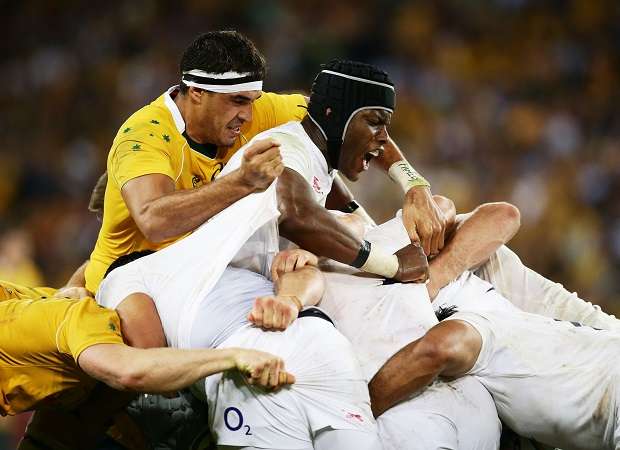 England's sensational success in Brisbane yesterday was all the more laudable considering they were at a disadvantage because of the ridiculous way World Rugby introduce law changes.
England's sensational success in Brisbane yesterday was all the more laudable considering they were at a disadvantage because of the ridiculous way World Rugby introduce law changes.
The Southern Hemisphere implemented a number of law changes in January affecting how referees interpret the actions of players on the field and how a driving maul is structured and the passage of the ball through the driving maul.
These included the ball having to be passed from the player who was initially at the front of the maul to a player behind him and then to the next player until the ball eventually reaches the back of the maul. Rather similar to the maul before the ‘Truck and Trail' system was introduced and the ball carrier retained the ball and retreated to the back of the maul through a protective channel of his own players.
The Northern Hemisphere teams have only just instigated the change at the end of the regular season a couple of weeks ago. Although this may not seem a massive change, it does require a level of coordination to stop the opposition from being able to get in and steal the ball.
While I agree the reason for the change to make the maul more competitive, allowing the opposition at least the chance of legally stopping the driving maul, I cannot understand why it was introduced at different times in each hemisphere.
The changes could just as easily have been introduced into our season in January, unless it is thought that our players and coaches are unable to adapt to these changes during the season for safety reason, in which case why is it now acceptable for them to do it in less than two weeks?
If it were a player safety issue then surely it would have made sense for New Zealand, South Africa and Australia to revert to the system they were playing before the introduction of the new laws in January and match officials told to revert just for the current tours.
If there were no player safety issues, an introduction in January would have given our players the chance of getting up to speed before the Six Nations, allowing for our players and match officials to have some Test match experience of the new laws.
Rugby is a complicated game to understand, even by those that play or have played the game and is sometimes made worse by the introduction of new laws that are supposed to make it a ‘better' spectator sport. There is confusion for fans from both hemispheres who are unsure of why referees are making the decisions they make when penalising teams.
This it is not alleviated but only made worse by World Rugby's choice of introducing law changes at a different times in different places, in what is supposed to be a global game.
As England reflect on their first Test victory and the analysis begins, it must be recognized that it is time for all the rumours and mind games to stop.
It the build up to the first Test we had rumour after rumour of players being moving position or being dropped.
As expected, these turned out to be nothing other than a smoke screen. The reintroduction of the Saracens players with George Ford, after his kicking disaster against Wales, being initially dropped for Luther Burrell allowed Owen Farrell to start at fly-half. It was a team selection that most people agreed with.
Another part of the big build up was the insistence that England would be employing the equivalent rugby tactics of the infamous ‘Bodyline' cricket tour.
The idea that in the modern game of rugby you could approach anything like the new level of physicality that the ‘Bodyline series' showed at its time is ridiculous. Intimidation has always been a part of all sports but the Bodyline series broke the mould with bowlers deliberately targeting vulnerable areas of the relatively unprotected batsmen instead of bowling for the wicket.
To find any sort of equivalent in a game of rugby would entail a level of violence that would see a raft of players sent from the field and banned from playing for months.
In a modern contact sport like rugby, the only way you can up the physical confrontational of the game is to hit, punch or kick people without the ball randomly across the pitch.
While it may have been quite fun from a media promotion prospective, it was a stupid thing to say as it could have alerted match officials to a possible increase in the physicality of the England team. Thus making them more likely to take a negative view of what may have been an accidental collision and penalising the England player.


























